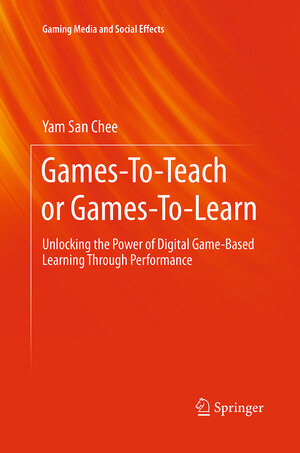
×
![Buchcover ISBN 9789811012440]()
“The author of this book promotes the inquiry-driven or games-to-learn approach. … I would highly recommend the book to anyone interested in edutainment, serious games, or more generally in the pedagogy of video games. Game designers, whether their games are educational or not, will find useful guidance and much to think about. And game researchers will find much to like about this volume, as it provides testable claims.” (J. M. Artz, Computing Reviews, December, 2015)
Games-To-Teach or Games-To-Learn
Unlocking the Power of Digital Game-Based Learning Through Performance
von Yam San CheeThe book presents a critical evaluation of current approaches related to the use of digital games in education. The author identifies two competing paradigms: that of games-to-teach and games-to-learn. Arguing in favor of the latter, the author advances the case for approaching game-based learning through the theoretical lens of performance, rooted in play and dialog, to unlock the power of digital games for 21st century learning. Drawing upon the author’s research, three concrete exemplars of game-based learning curricula are described and discussed. The challenge of advancing game-based learning in education is addressed in the context of school reform. Finally, future prospects of and educational opportunities for game-based learning are articulated. Readers of the book will find the explication of performance theory applied to game-based learning especially interesting. This work constitutes the author’s original theorization. Readers will derive four main benefits: (1) anexplication of the difference between game-based-teaching and game-based learning, and why this difference is of critical importance, (2) an exposition of the theory of game-based learning as performance, (3) concrete exemplars and research outcomes relating to three game-based learning curricula that have been empirically evaluated in schools, and (4) an understanding of complex issues related to the human side of school change that must be effectively addressed to achieve take-up of game-based learning in schools.



